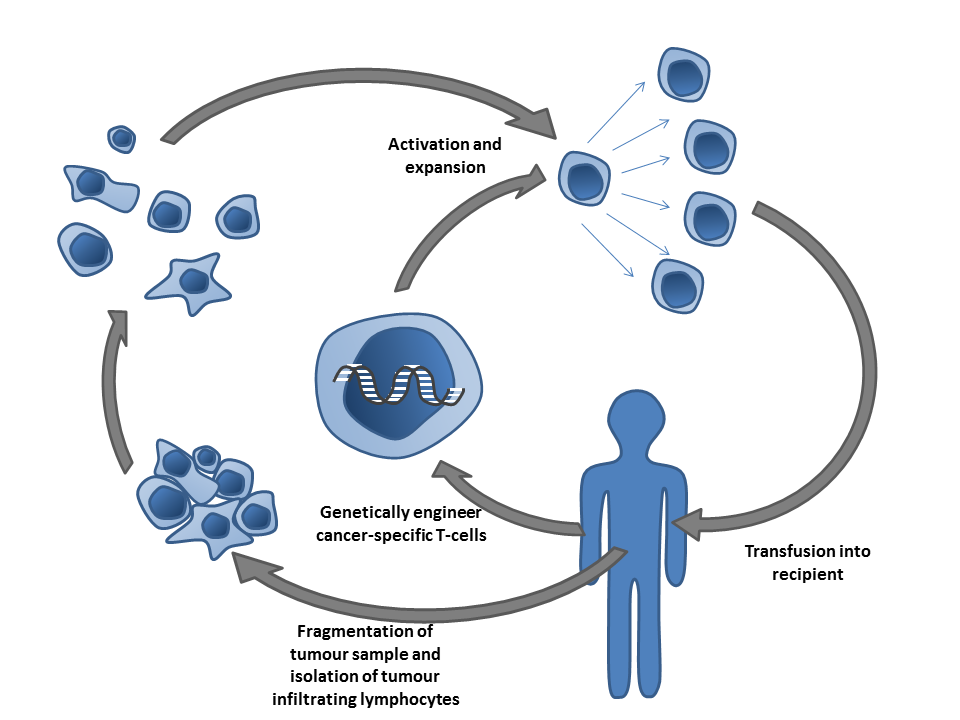A potential cancer immunotherapy treatment has been developed by researchers at Purdue University’s College of Pharmacy. Led by Zhong-Yin Zhang, the researchers are continuing to develop the immunotherapy treatment, which is based on an enzyme mutation. The team of researchers believes this discovery could benefit cancer patients who do not respond to other forms of immunotherapy.
A Closer Look at Cancer Immunotherapy
Cancer treatment options have changed significantly in recent decades. Treatments have started to trend in the direction of precision medicine, which aims to provide each patient with an individualized treatment plan tailored to their unique needs. Immunotherapy is one of the newest forms of precision medicine and has been a major avenue of investigation in recent years.
Researchers have been studying immunotherapy’s potential applications in virtually every form of cancer. As many as 15 different types of cancers have been successfully treated through immunotherapy, including lung, kidney, bladder, and skin cancers. In essence, immunotherapy uses a patient’s own cells to attack their tumor.
While the research has found evidence that immunotherapy can be used effectively, not everyone responds to this type of treatment. In some test groups, 20 to 50 percent of the group showed a strong response to immunotherapy. However, according to John Hopkins Medicine, the overall response rate is only between 15 and 20 percent. Current research is investigating who responds best to immunotherapy and why.
Researchers recognize the potential of cancer immunotherapy. However, they also understand that they need to continue working to help a larger percentage of patients benefit from this treatment. Purdue researchers hope their findings will help advance immunotherapy research and address some of the current roadblocks.
The Role of Biomarkers and Mutations in Immunotherapy Research
The search for biomarkers is one of the central focuses of current immunotherapy research. A biomarker can be either a protein or a genetic mutation, such as the mutated enzyme Purdue researchers have been researching. These biomarkers can be used to better identify what types of patients will respond to immunotherapies.
Purdue’s research could help answer some of these questions, but immunotherapy research is an infinitely complex topic. Researchers must continue to work towards finding answers to many other questions related to these treatments. However, this new discovery is an encouraging development.
Previous Efforts to Use the PTPN22 Enzyme as an Immunotherapy Method
Cancer immunotherapy uses T-cells to identify and attack tumors. According to Zhang, T-cells have complicated signaling networks that influence their activity. Previous studies have found that an enzyme known as PTPN22 regulates the signals that activate these networks. Some people have a mutation in this gene, but those without the mutation are at a higher risk of a cancer diagnosis.
Additionally, mice studies have shown that both the mutant PTPN22 and PTPN22 have increased immunity to tumors. This makes the mutated enzyme potentially useful as a form of cancer immunotherapy.
How Purdue’s New Immunotherapy Differs from Other Immunotherapy Strategies
No PTPN22 inhibitors are currently approved for medical use due to difficulty identifying PTPN22 among similar enzymes and a lack of in vivo activity. However, the team of Purdue researchers has developed a PTPN22 inhibitor that has shown improved antitumor responses in mice studies.
The Purdue treatment is based on novel fragments engaging with the active tumor site and peripheral binding pockets. These new inhibitors appear to lack the shortcomings of other PTPN22 inhibitors, as they are highly potent, show precise selectivity in identifying enzymes, and have high in vivo efficacy.
A novel lead compound called L-1 is used in the treatment and has demonstrated reduced tumor growth and improved immune system infiltration. Additionally, the team has observed no in vivo side effects.
How Purdue Researchers Plan to Build on These Findings
While these recent findings are exciting, the research team at Purdue’s College of Pharmacy is not done with this project. Researchers plan to continue to advance the treatment by designing, synthesizing, and testing another generation of inhibitors.
Zhang hopes that the next stage of research will help enhance the inhibitor’s potency, selectivity, and drug-like properties for use in clinical settings. The team aims to build a unique and innovative new immunotherapy treatment strategy that could potentially be used in tandem with other forms of immunotherapy.
Looking Towards the Future
The development of innovative cancer treatment methods can seem slow at first, but it is important to remember how far the field has come over the past 20 years. Approximately 40 percent of adults will be diagnosed with cancer in their lifetime. While this used to be a sure death sentence in many cases, modern treatment developments have already allowed far more people to survive cancer.
Teams of researchers at Purdue University and throughout the world are constantly working towards groundbreaking new discoveries that could further improve survival rates. We look forward to further research on this new PTPN22 immunotherapy, how it could be combined with other immunotherapies, and how other researchers may use these new findings to advance their own research.

